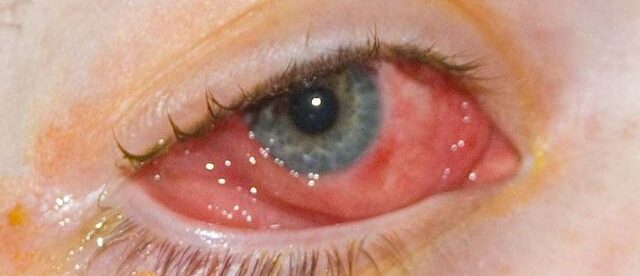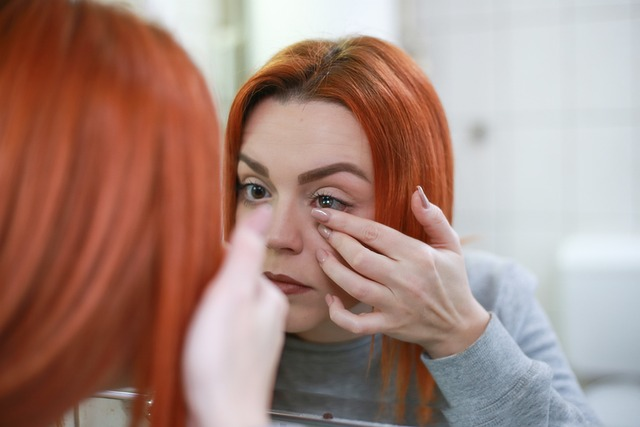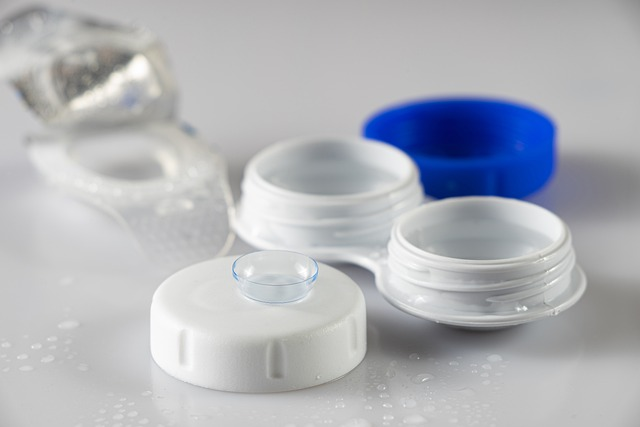How To Deal With Eye Irritation After Removing Contacts

Have you ever felt this: You remove your contact lens, and your eye suddenly feels itchy, dry, teary, red, and maybe irritated? This is called “eye irritation after removing contacts,” and it happens to more people than you think.
According to research, 60% of contact lens wearers get tired eyes, irritation, or even infections after removing contacts.
Here is a guide to help you understand what it means to have eye irritation after you have removed your contacts, what causes infections after, and what you can do to prevent the discomfort. If you are set for this information and more, then let’s get into it.

What are Eye Infections and Irritation?
Before going too deep, knowing what eye infection and irritation mean would be best.
Eye infections are diseases of the eyes caused by a harmful microbe, such as a virus, bacterium, fungus, or other material.
Corneal abrasion which is a scratch to the cornea’s outermost layer, is n infection. Corneal abrasions can lead to blurred vision or even total vision loss if not treated immediately.
Anotehr example is Keratitis, also known as a corneal ulcer. It is an inflammation of the cornea. Keratitis can cause redness, pain, light sensitivity, a scratchy or gritty feeling, blurred or hazy vision, and watering.
When it comes to eye irritation, it simply means a discomfort in the eye. Some symptoms of irritation include eye pain. When the pain persists, then you know you are dealing with an irritated eye. Excessive tearing is another sympom that usually occurs as a natural reflex in response to the irritation, which tries to help flush out the particle.
Dry eyes can sometimes cause the eye to become itchy or feel gritty. A dry eye can also make you feel like there’s dust in your eyes.
Other common symptoms include redness, blurred vision, itchiness, swelling, sensitivity to light, and watery eyes.
Most people don’t know the difference between irritation and infection. While infection can irritate, an irritated eye cannot lead to an infection. If you have any symptoms of an eye infection, it is best to see the eye doctor immediately to prevent permanent damage.
Does Contact Lenses Cause Eye Infection and Irritation?

Wearing contacts should not cause an infection or even irritation. Truly, sensitive eyes can sometimes react to contact lenses, leading to redness or even some distress to the corneal tissue.
However, if you are wearing your contacts the way the optometrist has prescribed, then there shouldn’t be much of a problem. So then comes the question.
If contact lenses are not the reason your eye hurts, then what is? The next section will answer this question.
What Causes Eye Discomfort After Removing Contact Lens?
While contact lenses don’t cause discomfort, how you use or wear contact lenses can lead to distress. Bad habits that can lead to eye itch and swelling include wearing old contacts.
Every contact lens has its expiration date. If your contacts have past their expiration date, it would be best to do away with them. If you continue to wear old contact lenses, you stand at the risk of an itchy eye.
Also, if you forget to give your eye a break, then you are giving your eye a cause to become irritated. Your eye needs to have some rest to allow oxygen pass through. So whenever you can, wear your glasses and give the contact lens a break.
In case you don’t already know, don’t sleep in your contact lens. Not only do you eliminate the break your eye needs, you also completely block oxygen from reaching your eye.
In the same way, the reason for itchy eye could be because the contact lens don’t fit. If it is too loose, the lens move around too much and can lead to an infection. If it too tight, it can suffocate your eye. Based on their experience, your optometrist may determine that a different brand or product would suit you better.
Believe it or not, your lenses need some level of hygiene and care. For example, keep your contacts contact lenses in a lens case after use for moisturization. Clean your contact lenses carefully and on a regular basis, as instructed by your optometrist.
To clean and store contact lenses, only use fresh solution. Another example is to replace your contact lens at least every three months. Before handling contact lenses, always wash and thoroughly dry your hands.
If you reside in places with high levels of dust, low humidity, polluted air, or even metal aerosols, there is also a big chance that your eye can get dry, itchy, or even swollen. This experience would even become worse when you are wearing contacts.
How to Prevent Eye Irritation When Wearing Contact Lenses.

Now that we are done with what it is and why it happens, let’s go over what you can do to get rid of it. Wearing contacts should be thing of joy – it is supposed to reduce your risk of vision loss not increase it. So in that case, how can you prevent itchiness after you have removed your contact lens?
Eye Drops & Saline Solution
Drops aid in the relief of dryness and distress caused by the use of contact lenses. However, it is important to consider the appropriate preparation. Some of these can cause lens deterioration and injury. Choose those with minimal or no preservatives. They must also contain hydrating elements that help to stabilize tear film production.
Exercises to Help Reduce Eye Irritation After Removing Contacts
Focus on objects at different distances, starting with the one closest to you and gradually moving further. Keep your eyes on each object for several seconds, then blink several times. It will help you moisturize your eyes.
You can also practice looking down and up with your eyes closed. Slowly move your eyeballs first to one side and then to the other. Make 10 reps for each page. This exercise will help you relax your muscles around your eyes.
Another exercise is palming. You’d have to cover your eyes with preheated hands. Their base should be loose on the face, but do not touch the eyes. There should also be no light through them. Close your eyes slowly and stay in this position for about 10 minutes. After that, open your eyes and blink several times.
Conclusion
Despite the drops and the exercise, you should see a doctor for your contacts immediately if you notice that the symptoms aren’t going. Mild irritation is one thing, but if you are experiencing the pain while wearing lenses – like your eyes are on fire, then you need to visit the ophthalmologist.






